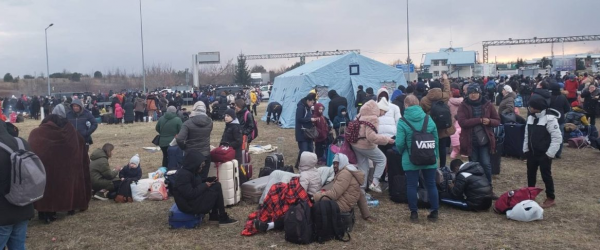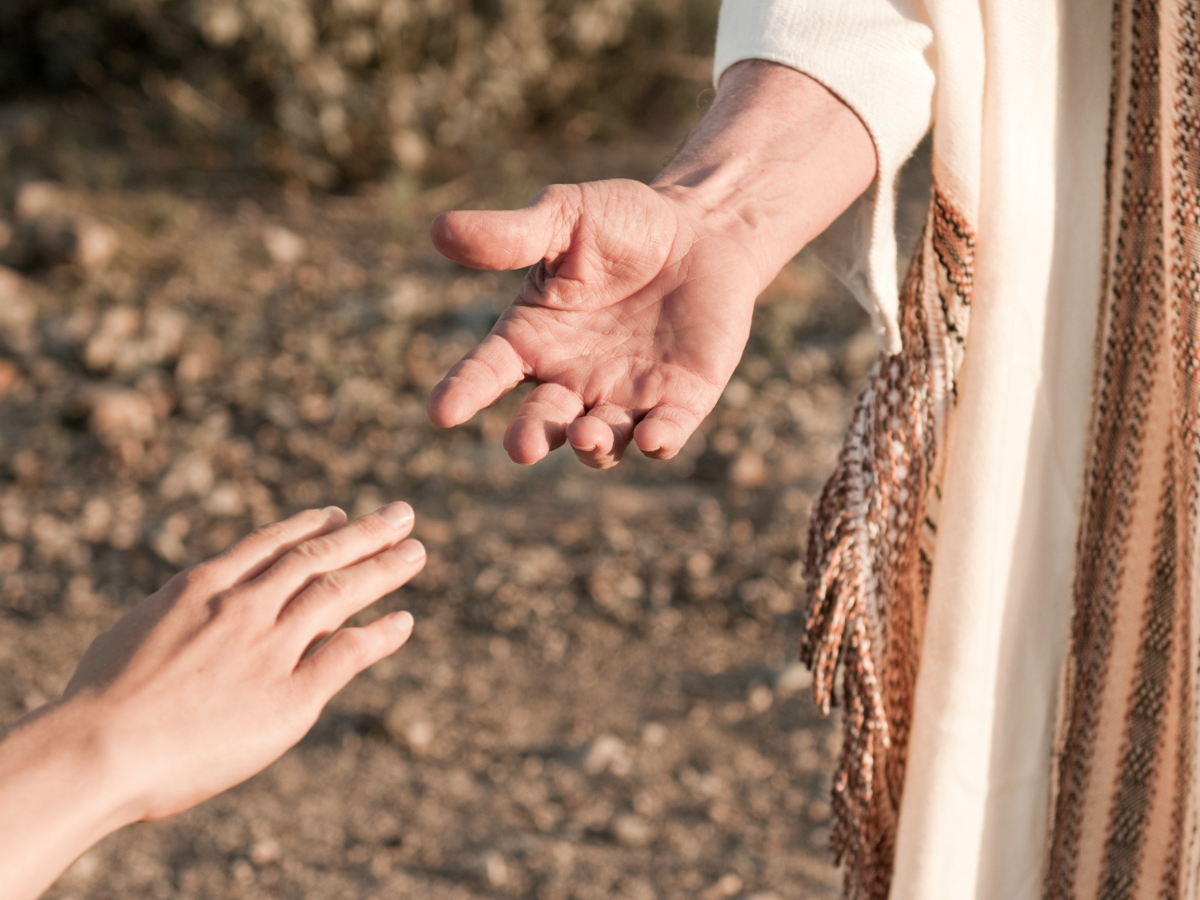
I am a Refugee: Reflections of a Missionary Leaving Ukraine, Part 2
The following was written on March 7, 2022 and published as a SEND U Blog. SEND U , SEND International's training and development focus, is a place and a forum for sharing resources, training opportunities and ideas broadly within SEND.
Find Part 1 here: I am a Refugee: Reflections of a Missionary Leaving Ukraine, Part 1
By Ken Guenther
So how does my faith help me deal with my new status as a war refuge? I am still processing this new reality, and so my answer will be very incomplete.
Reminder that we long for a country of our own
First of all, this is a reminder to me that we are foreigners and aliens in this world ( 1 Peter 2:11 , Hebrews 11:13 ). In our 35 years of cross-cultural ministry, we have left homes and ministries several times before. We spent ten years in the Philippines before relocating to Russia. Then after another ten years in Russia, we moved to Ukraine. But this is the first time that we are leaving without knowing what our destination and future ministry location will be.
I admit that I had become very comfortable in Ukraine. Life was relatively predictable, convenient, inexpensive, and safe. It was a wonderful base for my global training ministry.
But our citizenship is in the kingdom of God ( Eph 2:19 , Philippians 3:20 ). Our new refugee status reminds us that we long for another country, a realm where we really belong and which God is preparing for us ( Heb 11:14-16 ).
"All these people were still living by faith when they died. They did not receive the things promised; they only saw them and welcomed them from a distance, admitting that they were foreigners and strangers on earth. People who say such things show that they are looking for a country of their own. If they had been thinking of the country they had left, they would have had opportunity to return. Instead, they were longing for a better country—a heavenly one. Therefore God is not ashamed to be called their God, for he has prepared a city for them." - Hebrews 11:13-16
Recognition that God has been preparing me for this
Secondly, our new status as war refugees comes with a growing recognition that God has been preparing me for this. Everyone’s journey and story will be somewhat different. But I can now see that God has been uniquely preparing me for this crisis.
In 2020, we were stuck in Taiwan for 5 months, unable to return to our home in Ukraine due to the pandemic. We adapted and developed new ministries during that time. Maybe that time in Taiwan was part of God’s preparing us for what is happening today.
Then God has been teaching me through my own research and writing. Over the past 15 years, I have added a great number of Bible notes and journal entries in my Bible software program. All of these notes and journal entries are tagged with various biblical themes. Recently I discovered that “suffering” was my fourth most common tag. This has been a theme that I have seen over and over again through the Scriptures, often in relationship to the cost of discipleship.
Furthermore, I just finished a blog series on resilience. Now I have an opportunity to practice what I learned about becoming more resilient!
Warnings strengthen resolve
A couple of days ago, I reflected on how Jesus repeatedly warned the disciples of what was going to happen to him as he headed toward the cross. Similarly, the Holy Spirit repeatedly warned Paul that prison and hardships were facing him ( Acts 20:23 ). But these warnings only strengthened Paul’s resolve to keep running the race and complete the task Christ had given him.
“And now, compelled by the Spirit, I am going to Jerusalem, not knowing what will happen to me there. I only know that in every city the Holy Spirit warns me that prison and hardships are facing me. However, I consider my life worth nothing to me; my only aim is to finish the race and complete the task the Lord Jesus has given me—the task of testifying to the good news of God’s grace."
-
Acts 20:22-24
God provides warnings of coming hardships to prepare us. These warnings are not meant to terrify us but to strengthen us. They help to shape our expectations of what the “normal Christian life” will look like.
An opportunity to practice waiting on the Lord
Probably the primary lesson I learned in 2021 was that I needed to learn to wait on God. Rather than pushing hard for a quick resolution of a problem, I needed to become more patient and allow God to work it out in his time. The following verses from Psalm 27 became very meaningful and I committed them to memory.
"I remain confident of this: I will see the goodness of the LORD in the land of the living. Wait for the LORD; be strong and take heart and wait for the LORD." - Psalm 27:13-14
Now we are again in a position of needing to wait. God is still good. His goodness has not diminished one iota since 2021. We need to wait for him, rather than immediately trying to figure out what we should do next. We will again see the goodness of the Lord in the land of the living. But we will need to patiently wait on God. In his time, our next directions will become clear.
Becoming a refugee is never a comfortable place to be. But it is a place to learn to trust God in new ways.
Read more blogs from SEND U
Visit SEND U for missions resources
Find more information about Helping Ukraine on the Ukraine Updates page.
Please Consider:
- Praying – Visit our prayer guide, “11 ways to pray during the crisis in Ukraine”
- Giving – Your donation today prepares us to respond to acute needs as they arise and 100% of donations to Help Ukraine go to crisis response.
- Advocating – Use this this downloadable prayer guide and slide to lead a time of prayer at your church or share with friends.
Additional Posts





